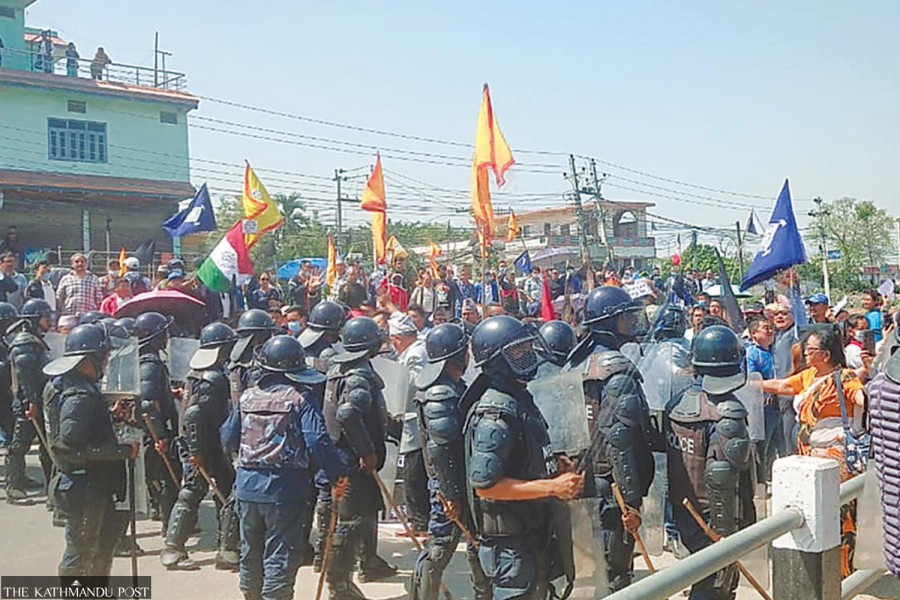Editorial
All in the name
The protests in Koshi show that the agenda of ethnic identity is very much alive and should be addressed politically.
When Koshi became the last province in the country to get an official name a month ago, there were expectations that the nomenclature imbroglio would end once and for all. That was not to be. The way the meeting of the assembly of the erstwhile Province 1 proceeded on the day of the nomenclature had some essential ingredients for the dissent that would follow. The name of the province was announced with fanfare following a vote in the provincial assembly with an absolute majority, topped with a public holiday; however, the name was immediately rejected by a section of the local people. Apart from several other factors, the problem began with the major parties in Kathmandu imposing the name rather than letting the people’s representatives in the province make an informed choice.
The Kirat-Limbuwan Struggle Committee, among others, has been staging protests against the endorsement of the province’s new name in Biratnagar. Similarly, there have been protests in other parts of the province, with some instances of violence. One Padam Bahadur Limbu was killed on March 24, while many others suffered injuries. The ongoing protests have to do with the dissatisfaction among a section of the people who say the name does not represent the identity of the people living in the region.
The momentum for the dissent, though, had been building up since as early as 2017, when the first provincial elections were held, and provinces began to carve new identities for themselves. Despite years of haggling over the name, there seems to have been little consultations with the stakeholders in the region, the locals in the main, on the issue.
That province could not be named for the longest time among all seven provinces shows that it was a complicated matter. It was thanks to the Maoist Party that various ethnic communities across the country became vocal about their rights to identity. This is the discourse they mainly pushed, especially in the run-up to the first Constituent Assembly elections in 2008. The Maoists even floated the idea of creating provinces along ethnic lines, only to ditch the idea once they got embroiled in parliamentary politics and considered it beneficial to side with mainstream forces rather than oppose them. The Maoists have come far from the ideals of ethnicity- or identity-based demarcation of provinces, but little did they know that long after they had abandoned it, the torch for ethnicity-based provinces would be taken up by others.
As the most important agent for building a case for ethnicity-based provinces, the Maoists are morally responsible for either supporting the protests in the Koshi Province or convincing them otherwise. No less responsible are the parties that have bulldozed their ideas of naming the province in a way that makes the people living in the region misrepresented.
The protests in Koshi show that the agenda of ethnic identity is very much alive and should be addressed politically. In a recent interview with the Post, CPN-UML deputy general secretary Prithvi Subba Gurung said the problem would have been resolved had the province been renamed Kirat-Koshi. While the act of renaming itself has various nuances, the ideas like the one floated by Subba could serve as talking points in an attempt to resolve the ongoing conflict.
First, the governments at both the federal and provincial levels should ensure that the series of violence in the province comes to a stop and there are peaceful negotiations to safe-land the dispute.




 18.12°C Kathmandu
18.12°C Kathmandu














